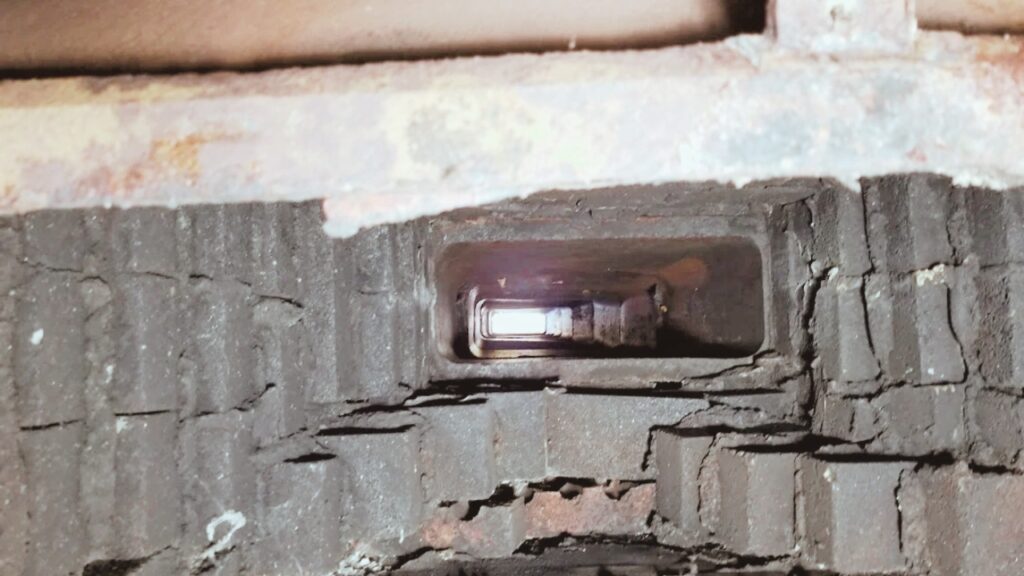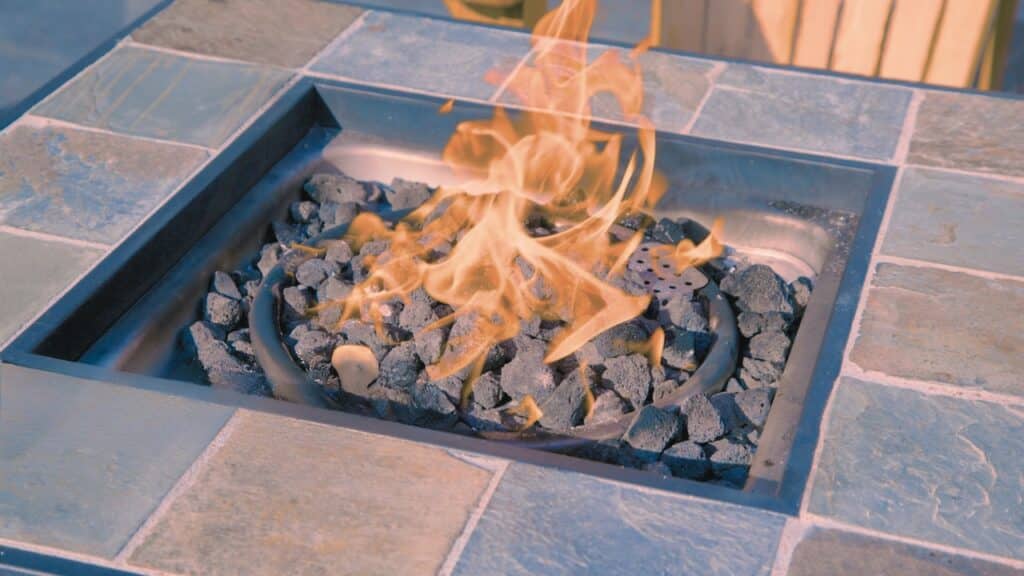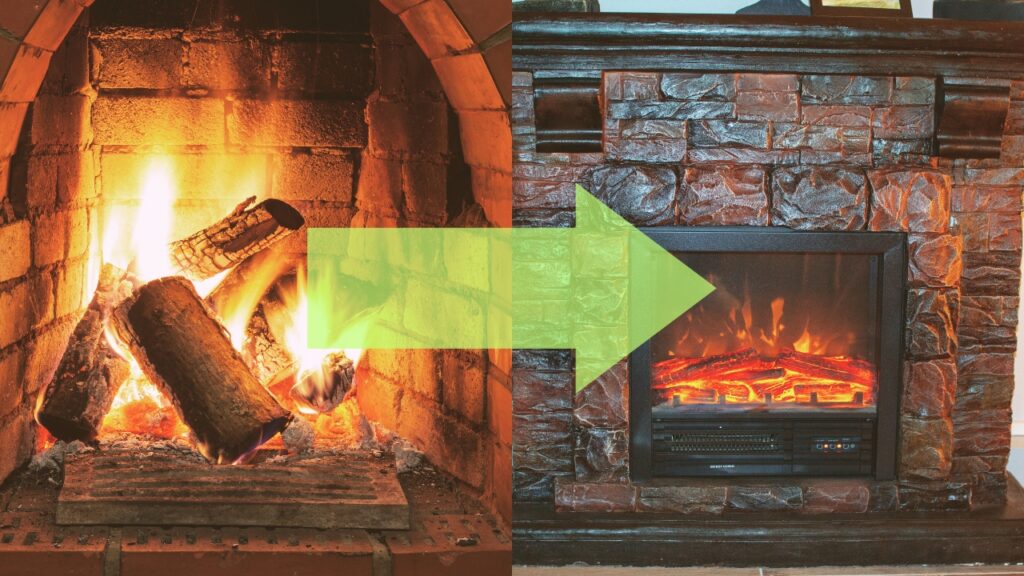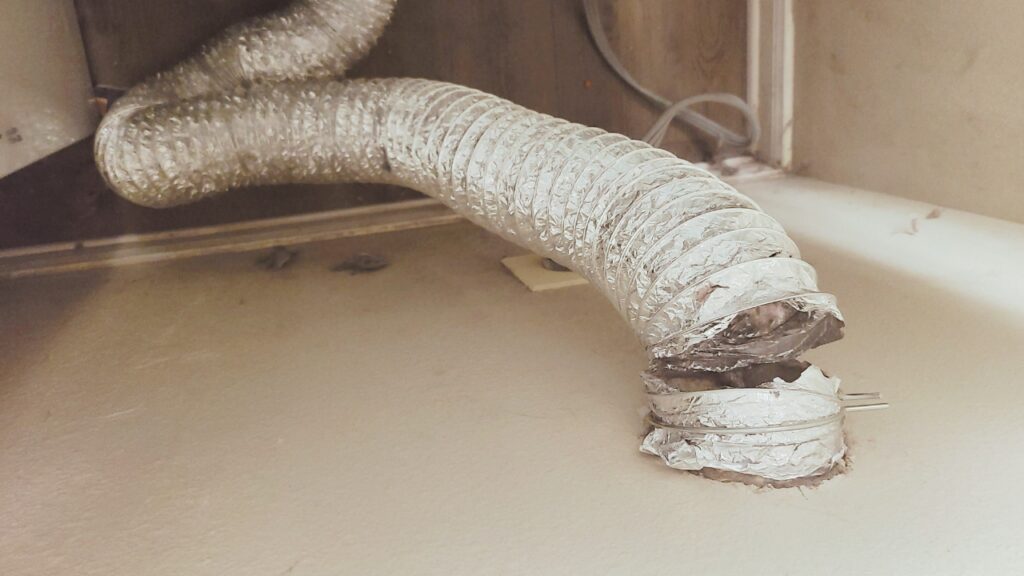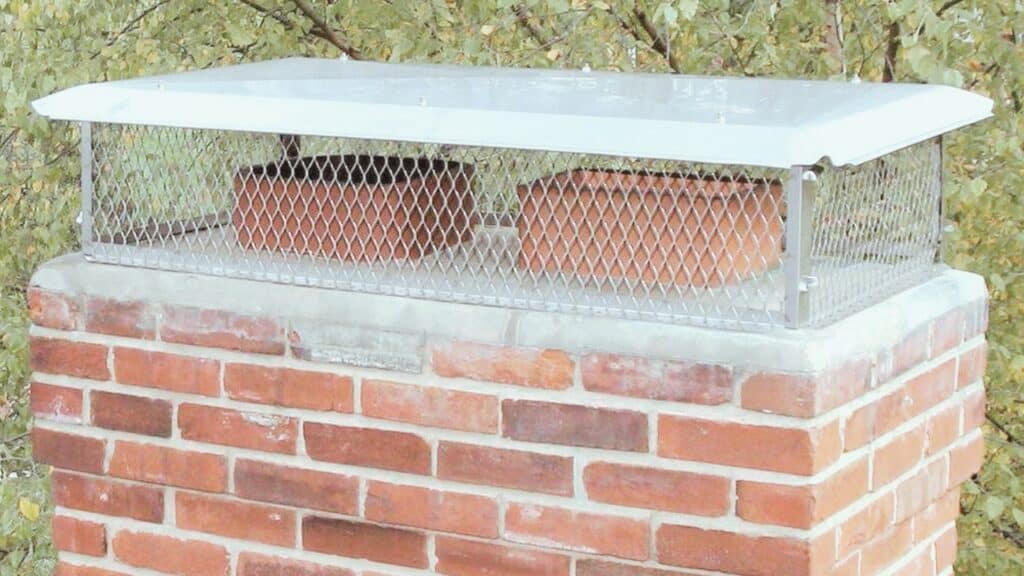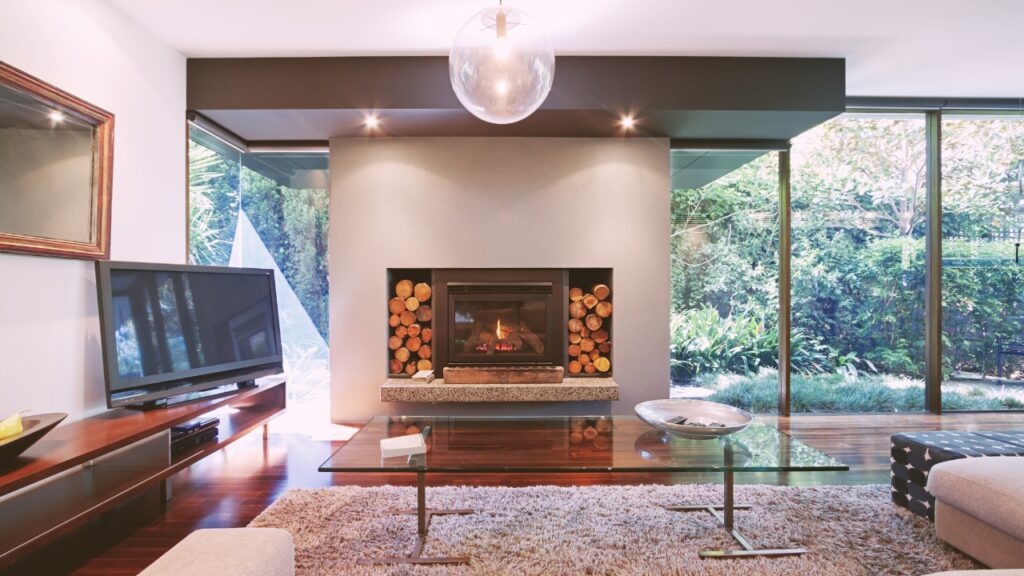There is a lot of information on wood framed chimney chase construction. However, only a handful of websites provide reliable and accurate information. Another area for improvement with such information is how complex it can be to understand.
This is why we have decided to provide a concise and easy-to-understand guide on wood-framed chimney chase construction.
Our guide will focus on the construction process of such a chimney chase and the information you need to know to get the job done correctly.
What Is the Primary Purpose of a Chimney Chase Cover?
There are several purposes for a chimney chase cover, with the primary objective being to keep water out of the wood-framed chimney chase. Additional purposes include:
Minimize the Risk of a Chimney Fire
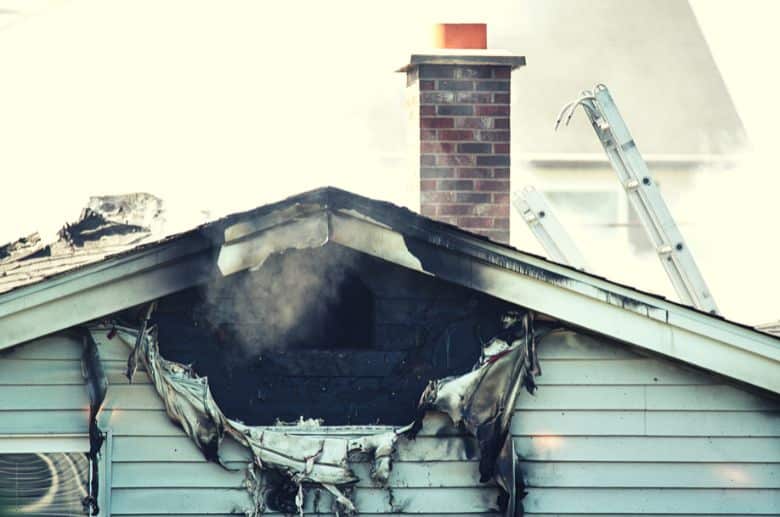
When you have a wood-burning fireplace, soot and creosote can build up on the wood framing of your chimney chase. If these deposits are not removed, they could fuel a chimney fire.
A properly installed chimney chase cover will help keep your wood-framed chimney chase dry, minimizing the risk of a chimney fire.
Prevents Chimney Leaks
Another purpose of a chimney chase cover is to prevent leaks. If water gets into the wood framing of your chimney chase, it could lead to wood rot and other damage.
A chimney chase cover will help keep water out, protecting your chimney chase from leaks.
Improves the Efficiency of Your Fireplace
When you have a wood-burning fireplace, the wood framing of your chimney chase can get wet from rain and snow. This moisture can cause the wood to swell, making it difficult for air to circulate up the chimney.
A chimney chase cover will help keep your chimney’s wood framing dry, improving your fireplace’s efficiency.
Reduces Drafts
If the wood framing of your chimney chase is wet, the air will be cooler when it hits the wood, and this can cause the air to circulate slowly, leading to drafts.
A properly installed chimney chase cover will help keep the wood framing of your chimney dry, reducing drafts.
Keeps Animals Out
It’s no secret that animals like to reside in wood-framed chimneys. If you have a wood-burning fireplace, you may have noticed that your chimney smells like animal droppings. This is because animals can get into the wood framing of your chimney and build nests.
A chimney chase cover will help keep animals out of your wood-framed chimney by providing a barrier. This will discourage animals from trying to get into your chimney, and it will also help keep your chimney clean.
There are several purposes for a chimney chase cover, but the primary goal is to keep water out of the wood-framed chimney chase. A chimney chase cover is an excellent option if you’re looking for a way to keep your wood-framed chimney in good condition.
——
Do You Need to Hire Chimney & Fireplace Expert?
Get free quotes from qualified experts near you. No commitment required!
——
Common Issues With Wood Frame Chimney Chases
Because wood frame chimney chases are constantly exposed to the elements, they can develop several problems over time. Some common issues include:
Water Buildup on the Siding
When wood frame chimney chases are not properly sealed, water can seep in and cause the wood to rot. Water can also cause the paint to peel off and the wood to warp.
To avoid this, regularly check the seals surrounding your chimney chase and repair any damage as soon as possible.
Mold and Mildew
If there is water buildup on the wood, mold and mildew can start to grow. Not only is this unsightly, but it can also be dangerous to your health. Be sure to clean any mold or mildew as soon as you see it and take steps to prevent water from building up in the future.
Unreliable Framing for Exterior Support
The wood frame of your chimney chase needs to be strong enough to support the weight of the chimney. If it is not, the chimney could collapse, causing serious damage to your home. Inspect the framing around your chimney chase regularly and make repairs as needed.
Inadequate Fire Prevention
When not installed correctly, wood frame chimney chases can be a fire hazard. The wood is flammable, so if there is a fire in the chimney, the wood will catch on fire as well.
To prevent this, ensure that your chimney chase is installed correctly and inspected by a professional.
Incorrectly Installed Flashing
Another common issue with wood frame chimney chases is that the flashing is not installed correctly. Flashing is a metal strip that seals the chimney and roof joint.
If it is not installed correctly, water can leak in and cause damage to your home. Have a professional check the flashing around your chimney chase and repair any damage.
Missing Cricket
Finally, wood frame chimney chases can also develop problems if they are missing a cricket. Cricket is a small, triangular piece of wood placed behind the chimney to deflect water away from the chimney.
If your chimney chase is missing a cricket, water can pool up in front of the chimney and cause damage. Be sure to have a professional install a cricket if one is missing.
It is essential to know the potential problems if you have a wood frame chimney chase. Regularly inspecting your chimney chase and making repairs as needed can prevent these issues from becoming serious.
How Do You Build a Wood Frame for a Chimney Chase?
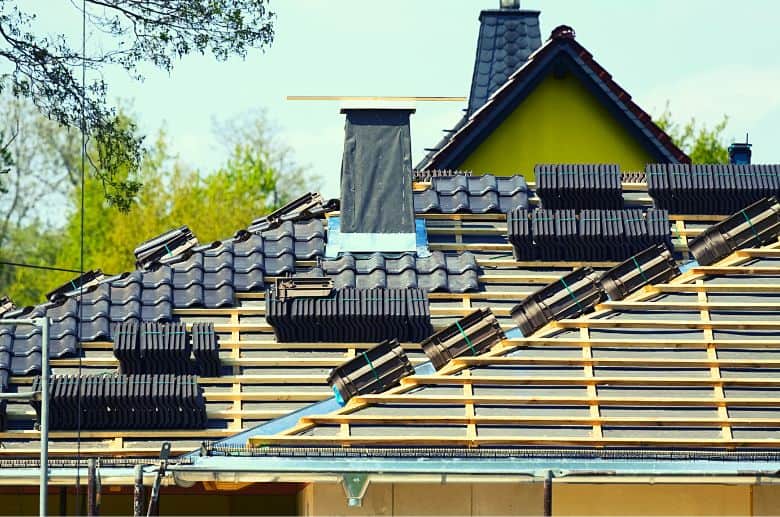
Building a wood frame for a chimney chase is not difficult, but it is essential to do it correctly. This section will provide a step-by-step guide on how to build a wood frame for a chimney chase.
DIY Disclaimer
This section provides general information on building a wood frame for a chimney chase. We do not recommend that you attempt to build a wood frame for a chimney chase yourself.
If you are not experienced in carpentry, it is best to hire a professional. Building a wood frame for a chimney chase requires precision and experience to do it correctly.
What You’ll Need
- Tape measure
- Level
- Circular saw
- Hammer
- Nails
- Carpenter’s square
——
Do You Need to Hire Chimney & Fireplace Expert?
Get free quotes from qualified experts near you. No commitment required!
——
Step 1: Measure the Chimney Chase
The first step is to measure the chimney chase. You will need to know the dimensions of the chimney chase so that you can cut the wood to the right size.
Here’s what you need to measure the chimney chase:
- First, start by measuring the outside length and width of the chimney chase.
- Next, measure the diameter of the venting pipe coming through the chimney chase to figure out where to cut the hole for the chase cover. It’s essential to measure the pipe’s inside and outside diameters.
- To correctly cut the hole for the chase cover, you need to know the distance from the outside edge of the chimney chase to the center of the venting pipe. This is called the “offset.” You can determine the offset by measuring the inside width of the chimney chase at the top and bottom.
- Add a quarter inch to the diameter of the venting pipe to get the final cut-out size for the hole in the chase cover.
- Add half an inch to the hole diameter, allowing the venting pipe to slide through the hole easily in case of any irregularities.
Step 2: Cut the Wood to Size
Once you have the measurements of the chimney chase, use a circular saw to cut the wood to size. Be sure to measure and mark the wood before you start cutting.
Step 3: Assemble the Frame
Next, you will need to assemble the frame. Start by hammering the corners together with nails. Then, use the carpenter’s square to ensure the frame is square.
Step 4: Attach the Frame to the Chimney Chase
Finally, you will need to attach the frame to the chimney chase. Be sure to use nails or screws that are long enough to go through the wood and into the brick or mortar of the chimney chase.
Ensure the frame is securely attached before moving on to the next step.
Step 5: Install the Flashing
The last step is to install the flashing. Start by sealing the chimney and roof joint with a metal strip. Then, use nails or screws to secure the flashing in place.
As you can see, building a wood frame for a chimney chase is not tricky. However, it is crucial to do it correctly. Be sure to hire a professional if you are not experienced in carpentry.
Should a Chimney Chase Be Insulated?
If you live in a region with very cold weather, insulating the chase will keep the chimney warm, reduce creosote buildup, and increase draft circulation. Moreover, insulating the wood frame is advisable to protect it from moisture.
There are different ways of insulating a wood frame chimney chase, including:
- Using rigid foam boards
- Sealing the wood frame with caulk or spray foam
- Installing fiberglass insulation
- Hiring a professional to install liner kits
The most effective way to insulate a wood frame chimney chase is to hire a professional to install a liner kit. Liner kits are made of stainless steel or aluminum and come with insulation.
Installing a liner kit is a bit more complex than other methods, so it is best to hire a professional. But the liner kit’s benefits make it worth the extra cost.
Conclusion
A wood framed chimney chase construction is a great way to add character to your home. But, it is essential to maintain maintenance and repairs to prevent serious problems. Be sure to inspect your chimney chase and make repairs as needed regularly.
If you are not experienced in carpentry, hire a professional to help you. Following these tips ensures that your wood frame chimney chase lasts for years.

